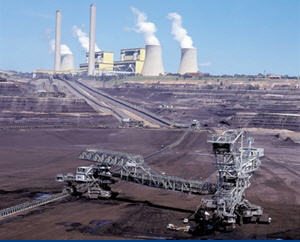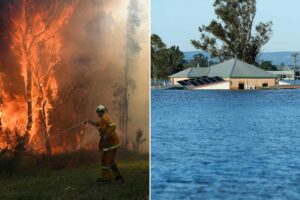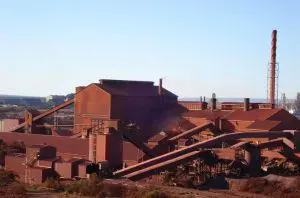The Australian Greens have unveiled a major new policy proposal that would use a levy on coal miners to fund the nation’s transition away from the heavy polluting fossil fuel that is already happening at a global scale.
The plan, to be formally unveiled by Greens leader Richard Di Natale on Tuesday afternoon, is that the tax would be used to fund the “billions of dollars” needed to rehabilitate former coal mine and storage sites – a cost often borne by state governments – and to retrain coal industry workers for jobs in the emerging clean energy industry.
“As coal companies go bankrupt or leave Australia, it is coal workers who are hit the hardest, followed by state governments, who are regularly left to foot the bill for cleaning up the mine,” Dr Di Natale said on Tuesday.
Indeed, just last week a report published by Carbon Tracker, Energy Transition Advisors, Earth Track and the Institute for Energy Economics and Financial Analysis (IEEFA) named coal mine rehabilitation as one of the major areas of government subsidisation to Australian coal production.
The report noted that, according to independent analysis of Australian mine closure and rehabilitation liability published in May 2015 by Lachlan Barker, Australian mining has generated at least $A18 billion of rehabilitation liabilities, mostly unfunded.

Meanwhile, the global coal market is being pounded by cheaper renewables, falling demand from major markets like China and India, energy efficiency measures, rising construction costs, a rash of legal and climate challenges, and shale gas.
As Di Natale points out in the Sydney Morning Herald, “This scenario creates two major public policy challenges: how to transition thousands of jobs in the sector; and how to pay for billions in clean-up and rehabilitation costs for dozens of disused coal mines.”
The policy proposed – compulsory coal industry payments that would contribute to “a Federal Trust Fund for the companies to access at the conclusion of their operations” – aims to meet these challenges as the global coal market starts to dive.
“The rapid decline in Australia’s coal exports in recent years is not a cyclical blip but a structural and terminal decline that will not recover,” Di Natale said.
“China, Japan and India are all diversifying their energy sectors away from imported coal, with coal imports from China down 31 per cent already this year.
But whether the Greens proposal will gain popular support, let alone support from across the political spectrum, remains to be seen.
Certainly the recently replaced federal resources minister, Ian Macfarlane, was not a fan of this idea. “If someone has a non-competitive power station then it’s up to them to close it,” he said last year.
And last week, Australia’s new energy minister, Josh Frydenberg, didn’t show many signs of a change in the Coalition’s attitude to coal industry investment and subsidisation.
In interview with Fairfax media, the newly sworn in energy and resources minister reiterated the government’s plan to use taxpayer money from its $5 billion Northern Infrastructure Fund to help get the Adani-owned Carmichael coal mining project off the ground.
“[Carmichael coal mine is] a very important project, which will see significant investment in Australia and provide electricity to millions of people in the developing world,” Frydenberg told the AFR, repeating the mantra of his former boss.
“Anti-development activism can create major delays in projects and send investment offshore, and you have to be very conscious of that when there are such large time frames involved and we are competing internationally for investment in this country,” he said.








